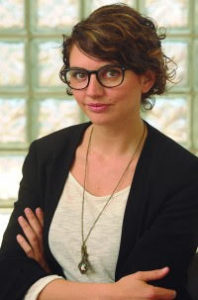
El 31 de enero de 2017, de 11.00 a 13.00, la Cátedra UNESCO organiza el seminario «Learning outside the Box» en la Universidad Carlos III de Madrid, campus de Leganés.
Resumen
Much has been published about the skills for the XXI century or the digital era. In this seminar, two will be analyzed: one is self-regulated learning (SRL) and the other one computational thinking (CT). Now that there is so much educational material online, persons with good SRL skills have a tremendous advantage when they want to acquire new knowledge whenever needed. Prof. Mar Pérez Sanagustín from PUC Chile will report on recent findings on this topic. On the other hand, programming skills are nowadays an asset in the digital age. On top of it, understanding the essence of the concepts behind programming languages can help solve problems in a structured and systematic way. This is what has been called computational thinking. As Mitch Resnick from MIT says, you can learn to code, but you can also code to learn. From Prof. Matthias Hauswirth from the University of the Italian Switzerland in Lugano we will hear an interesting experience around CT.
Lugar
Universidad Carlos III de Madrid
Campus de Leganés
Salón de grados del edificio Padre Soler
Avda. de la Universidad 30
28911 Leganés, Madrid.
Cómo llegar
- En Metro: parada «Leganés Central» de la línea 12 «Metrosur»
- En Renfe‐Cercanías: Parada «Leganés» de la línea C‐5 (desde Atocha en dirección Humanes)
- En coche
Programa
11:00 – 12:00. Matthias Hauswirth.
«A Popup Museum of Computational Thinking«
How can you excite a group of 500 high school students about informatics and teach them a few foundational ideas of computational thinking, if you get just one day of their time? In this talk I will describe how we designed and operated a temporary interactive «computational thinking» museum to celebrate the 10-year anniversary of the faculty of informatics at my university. I will present the design process, the thematic structure of the exhibit, and the mechanics of the various interactive activities. This presentation will be followed by a scaled-down version of two such activities, involving the participation of members of the audience. I will close the presentation with a discussion of ongoing efforts on improving the teaching of computational thinking.
BIO
Matthias Hauswirth is an associate professor at the Faculty of Informatics of the Università della Svizzera italiana (USI) in Lugano, Switzerland. Matthias’ original research area lies between programming languages, runtime systems, and software engineering, with a focus on the efficiency of software, its users, and its developers. Besides these more traditional computer science topics, Matthias always has had a deep passion for education. He profoundly enjoys helping people learn, and he would like to better understand human learning. That’s why he spent a sabbatical at SRI’s Center for Technology in Learning to prepare for a new research journey into the world of computer science education and the learning sciences.
12:00 – 13:00. Mar Pérez-Sanagustín.
«How do people self-regulate in the online learning environments of the 21st Century«
We are living a time of continuous change. In an increasingly globalized world, changing jobs, and even country is part of the daily life of many people. Today, working in interdisciplinary groups and in a variety of contexts, from online to face to face, is very common. Given these circumstances, today’s workers need to continually learn and be flexible in order to adapt successfully to change. In this context, having the skills that allow you to plan, organize and control your learning goals is key. That is having the ability to self-regulate our own learning. In this talk, we will analyze what we learned about the characteristics that define self-regulated workers and how they behave in massive online learning environments. This analysis will allow us to better understand how we should prepare the workers of tomorrow.
BIO
 Mar Pérez-Sanagustín is researcher and Assistant Professor at the Computer Science Department of the Pontificia Universidad Católica de Chile, and Head of the Engineering Education Division at the same university. She is a Doctor in Information and Communication Technologies since July 2011 by the University Pompeu Fabra, where she obtained the cum laude grade with European Mention. Mar also worked as a researcher at the Universidad Carlos III de Madrid (UC3M) with a Post-Doctoral Fellow Alianza 4 Universidades, at the LTRI group from the London Metropolitan University in London, and at the Stanford Research Institute (SRI) with a Fulbright fellow. As a head of the Technologies for Digital Learning Lab, she is the PI of a Fondecyt Project on Self-regulated Learning in MOOCs and coordinates the European Project Erasmus + MOOC Maker in her University. Her research insterests are self-regulated learning, MOOCs, blended learning, and CSCL.
Mar Pérez-Sanagustín is researcher and Assistant Professor at the Computer Science Department of the Pontificia Universidad Católica de Chile, and Head of the Engineering Education Division at the same university. She is a Doctor in Information and Communication Technologies since July 2011 by the University Pompeu Fabra, where she obtained the cum laude grade with European Mention. Mar also worked as a researcher at the Universidad Carlos III de Madrid (UC3M) with a Post-Doctoral Fellow Alianza 4 Universidades, at the LTRI group from the London Metropolitan University in London, and at the Stanford Research Institute (SRI) with a Fulbright fellow. As a head of the Technologies for Digital Learning Lab, she is the PI of a Fondecyt Project on Self-regulated Learning in MOOCs and coordinates the European Project Erasmus + MOOC Maker in her University. Her research insterests are self-regulated learning, MOOCs, blended learning, and CSCL.

